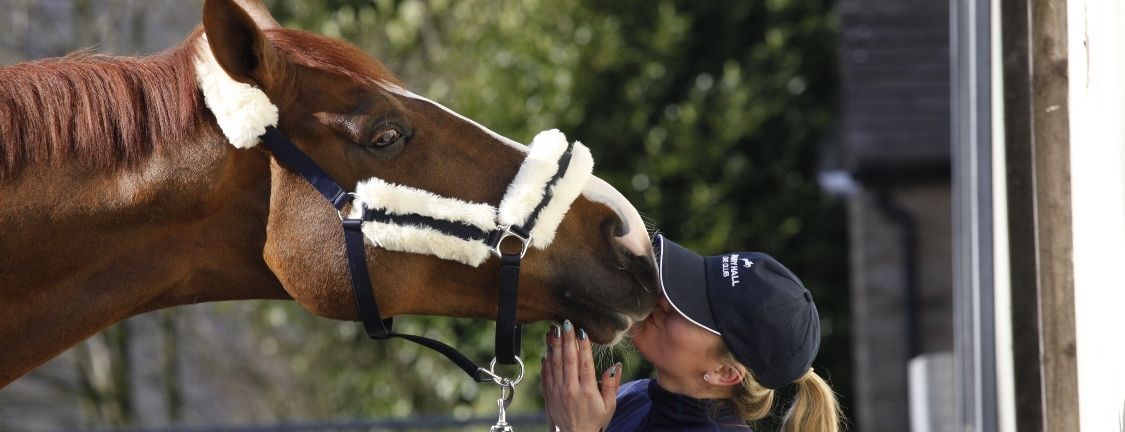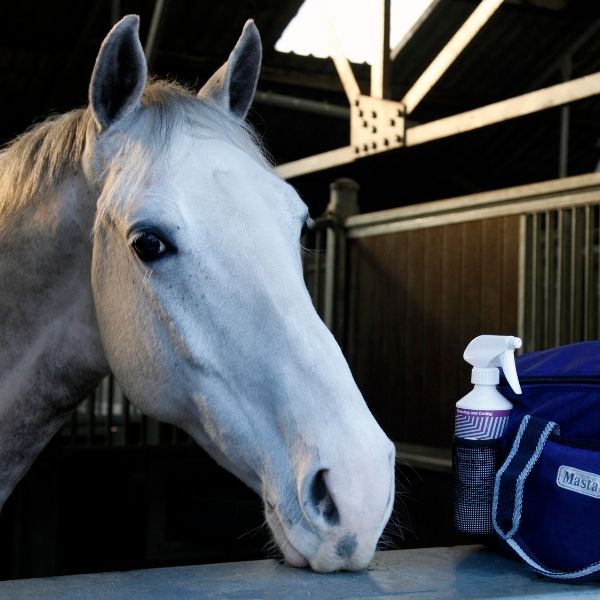
Passionate about matching potential owners or loaners with the right horse, Right Horse Right Home we are transforming how people can find the right horse or the right home for their horse. They look to empower those looking for their next equine partner by providing transparent information by which users can make informed choices. And recently their founder Rebecca Evans gave Harry Hall her honest thoughts on the price of horses during lockdown and whether she thinks more horses will become available once lockdown ends.
There has been much talk on social media about soaring horse prices and how a horse you may have paid £4,000 for pre-covid would now have a price tag of £8,000 for the same type of horse. The puppy market has done a very similar thing with puppies, pre-Covid, going for £500-£800 now going for £3000-£3500. So is it set to continue or is the trend here to stay?
It seems quite ironic given the absolute devastation Covid has had on the economy, for prices of horses and puppies to have soared in this way. There is an argument however that many people have more disposable income than they would normally, money that would have been spent on transport to work, holidays and eating out. Demand has simply outweighed supply causing prices to skyrocket!
There are mixed feelings in the horse world about these high price tags, are they justified, have sellers gone mad? Have some people jumped on the bandwagon and upped the price of their difficult horse despite its numerous issues? Are horses actually selling for the prices advertised?
Breeders Welcome The Increased Prices
Many breeders would say absolutely the prices are justified and that horses have been too cheap for too long. If you look at the costs of covering a mare and keeping its foal until it is three years old, just the cost of weaning the foal, vaccinations, trims, hay and appropriate feed will run into thousands. Paying £3,000 - £4,000 for an unbroken, well-bred, well cared for and handled youngster would seem like a reasonable price but is there much room for profit for our breeders to make a living from these prices and to incentivise them to continue to breed good stock, I would suggest not.
Professionals Welcome Increased Prices Too
Another issue, worthy of consideration, is the time, expertise and expense needed to train a horse to become a good allrounder. The vast majority of horse buyers, do not have the expertise, competency and in all fairness, do not wish to risk their necks backing and breaking a youngster, therefore they need to rely on experts to produce these horses which put simply costs money.
If a professional or semi-professional purchases a good youngster for say £3,000 and spends the next two years bringing it on so that it is comfortable and proven in all disciplines surely the horse at six or seven years old, if it is genuinely proven in all disciplines, should be worth between £8,000 and £10,000? Even with this price in mind, there is very little profit for the seller if you calculate their time, livery, feed, vet fees, competition fees, arena hire, transport costs, and farriery costs just to name a few of the costs involved. Furthermore, these are expected costs and we all know that horses enjoy throwing the unexpected our way!
Are Buyers Expecting Unicorns for Peanuts?
The majority of leisure riders are looking for a 15.2-16.2hh proven allrounder, between seven and twelve years old, that will pass a five-stage vetting. A mare or gelding who is off the leg, can safely hack alone and in company, is good to load (ideally can be taken to events by one person without issue), is not overly sharp, spooky or quirky, does not need riding every day, can jump a course of 90cm and can also perform a reasonable dressage test of 68% plus. Horses like this come at a cost and arguably have been sold too cheap for too long.
Why should a horse, that is proven in this way only cost someone £4,000? The time, effort, risk and investment to produce a horse to this level far outweighs £4,000 which for many people is the average budget for a new horse. If the horse also needs to be suitable for a nervous rider, and can be a true confidence giver it will cost more and rightly so.
Horses that tick all these boxes are now being sold in the region of £8,000 to £12,000 which seems reasonable and justified in my opinion. It is however up to the buyer to do their homework, and ensure before they part with any money that the horse is suitable for what they need and that they have the time, funds and resources to continue to invest in the horse to ensure it also maintains that value. The best advice we can give it to test the horse extensively before you buy. Sit on your decision before you act to ensure it's the right one for you.
What Do Increased Horse Prices Mean for Horse Welfare?
If the cost of horses increases, is this not a good thing for the horse? Have horses historically been purchased too cheap for too long and as a result too many people bought a horse, often naively, without truly giving the decision the time and thought such a responsibility and commitment requires? Horses require continued investment, it is not just about the cost of the horse or even the cost of keeping the horse, to maintain its value their training and education also need investment and this can be expensive, especially if you need to send the horse to away to be professionally schooled. It is important that buyers realise horses do not necessarily maintain their sale price, just because you bought a horse for £6,000 does not mean it can be sold for £6,000 12 months later if its behaviour and performance have taken a downward turn.
There is an argument to suggest that if horse prices have risen people will better value and care for their investment which can only be a good thing for the horse and horse welfare. The lower the value of the horse, the higher the chance of it entering into a cycle of neglect, this is an undisputed fact. If people now have to save for several months before they can afford the calibre of horse they are wanting, this again will help ensure horses are not bought on a whim.

Horses in Lockdown being Bought Unseen
Conversely, due to the demand for horses and the restrictions of lockdown, more people than ever before are buying horses unseen without physically going to view and try the horse for the purposes intended. People are buying the wrong horses only having to sell or return them weeks later. Certainly not a good thing for anyone concerned. Many buyers feel so pressured that they will miss out on a horse if they don’t act fast which is not a position any buyer wants to be in when making such a huge decision. I would urge anyone not to buy a horse unseen unless you are very experienced indeed, have seen multiple videos of the horse, it has passed a vetting and you have it on some sort of trial period.
Are Some Sellers Exploiting the Increase in Horse Prices?
Many people may be prepared to pay for quality and respect these new Covid prices if the horse in question is proven as an allrounder especially if it is a confidence giving type you can even put a nervous novice on. What people I think seriously object to and take umbrage at is being sold a horse which is described as being exactly what you want but when you go to view it, or worse you purchase it, only to discover it is not fit for purpose and was not as described at all.
There is certainly evidence of some sellers, who have difficult horses to sell, who are not phased by making false claims in adverts are exploiting the demand for horses and the increase in horse prices. There is even evidence of people describing horses for sale, securing deposits for horses they don’t even own, so vigilance and homework on sellers and their horses as well as proof of ownership before any funds change hands is incredibly important.
Sadly we will always have unscrupulous people who try and abuse the good faith of others and the horse industry is no different. If a horse looks to be too good to be true with a very attractive price tag, it probably is so buyers beware. We live in a society where we are always looking for a bargain but horses are no longer that and if you do see a bargain horse, be very aware - there is likely to be a very good reason why the horse is going cheap. If you are one of the unfortunate ones and have been mis-sold a horse, do read this helpful article from Right Horse Right Home which can help you on what steps to take and what your rights are as a buyer.
Always do your homework about the horse and the seller. Stick to your list of wants and don’t deviate. Be prepared to wait for the right one but also be prepared that whatever you do end up purchasing will take considerable time to adapt to its new environment, and to you as its owner and jockey. Invest in riding tuition and give yourself time to bond and have the perseverance and tenacity to work through any foibles that you find, because you will find them.
Will More Horses Become Available Post Lockdown?
I am confident that as we come out of lockdown more horses will be advertised and become available from private buyers who have put off selling their horse until people can realistically and legally come to view the horse. Hang in there buyers, the prices may come down a touch as supply increases. Sadly, there are also likely to be some horses that have to be sold due to redundancy and financial constraints due to Covid, many will have owned their horses for years and are now forced to sell them which they probably don’t want to do at all, it will be like losing a family member. In these circumstances have compassion for these people and respect the heartbreak they are facing. Also, respect that their economic situation demands that they sell their horse so pay what the horse is worth.
If you need advice, support or help of any kind to find the right horse or indeed the right home for your horse email rebecca@righthorserighthome.co.uk or call them on 01844 342672
Visit the Right Horse Right Home website


